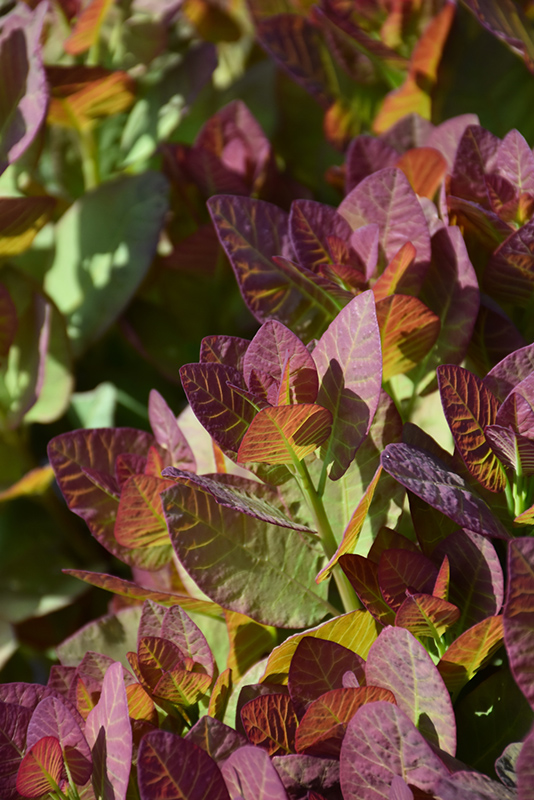Shonnard’s Nursery
Plant Finder Tool
Old Fashioned Smokebush
Cotinus coggygria 'Old Fashioned'
Height: 8 feet
Spread: 8 feet
Sunlight:
![]()
Hardiness Zone: 4b
Other Names: Smoketree
Description:
Beautiful reddish-purple new foliage matures to blue-green; billowy puffs of fuchsia-purple 'smoke' cover this shrub for a truly unusual and breathtaking effect; will stop you dead in your tracks to take another look; brilliant red fall color
Ornamental Features
Old Fashioned Smokebush features airy panicles of fuchsia flowers at the ends of the branches from early to late summer. It has attractive bluish-green foliage with hints of rose which emerges plum purple in spring. The crinkled round leaves are highly ornamental and turn an outstanding scarlet in the fall.
Landscape Attributes
Old Fashioned Smokebush is a multi-stemmed deciduous shrub with an upright spreading habit of growth. Its average texture blends into the landscape, but can be balanced by one or two finer or coarser trees or shrubs for an effective composition.
This shrub will require occasional maintenance and upkeep, and is best pruned in late winter once the threat of extreme cold has passed. Deer don't particularly care for this plant and will usually leave it alone in favor of tastier treats. It has no significant negative characteristics.
Old Fashioned Smokebush is recommended for the following landscape applications;
- Accent
- Mass Planting
- Hedges/Screening
- General Garden Use
Planting & Growing
Old Fashioned Smokebush will grow to be about 8 feet tall at maturity, with a spread of 8 feet. It tends to be a little leggy, with a typical clearance of 1 foot from the ground, and is suitable for planting under power lines. It grows at a medium rate, and under ideal conditions can be expected to live for 40 years or more.
This shrub should only be grown in full sunlight. It is very adaptable to both dry and moist locations, and should do just fine under average home landscape conditions. It is not particular as to soil type or pH. It is highly tolerant of urban pollution and will even thrive in inner city environments. This is a selected variety of a species not originally from North America.

